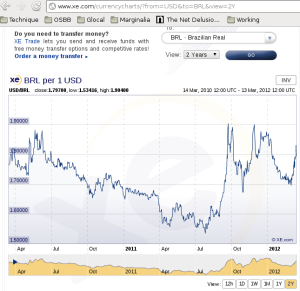Source: Blog da Cidadania
Between 2001 and 2002, Globo Comunicações e Participações Ltda. (Globopar) organized a financial scheme to acquire the transmission rights to the World Cup of 2002. The federal tax authority found the scheme to be fraudulent and criminal. The company was punished with heavy fines and other penalties.
Globopar had acquired a company in the Virgin Islands that was dissolved just one year later. The funds traced to this company by the tax authority were used by the Marinho family holding company to pay for the transmission rights.
The tax authority brought charges against the company, finding that the transaction had resulted in the evasion of the Income Tax for Corporations [IRPJ] and demanding the payment of the principal, together with adjustment for inflation and a fine. In all, the company was presented with a bill for some R$ 600 million.
All of this took place at a time when news of Globo’s financial problems were widely reported in Brazil and around the world.
In October 2002, Globopar, a shareholder and operator of the NET cable TV network — an asset it would later sell to the Mexican group Telmex — announced it would renegotiate the deadlines for settling the debt generated by its participation in NET.
At the time, market experts viewed the manuever as a sort of [“blank settlement”] by Globo.
Filed under: Accounting, Advertising, Antitrust, Asset-Backed Finance, Banking and Brokerage, Brazil, Broadband Convergence, Consumer Loans and Credit, Culture, Entertainment, Financial Services, Infotainment, Investment Banking, Media, Monetary Policy, Money Laundering, Public Relations & Advertising, Publishing, Regulation, Retail, Sports, Taxes, Telecom | Leave a comment »









